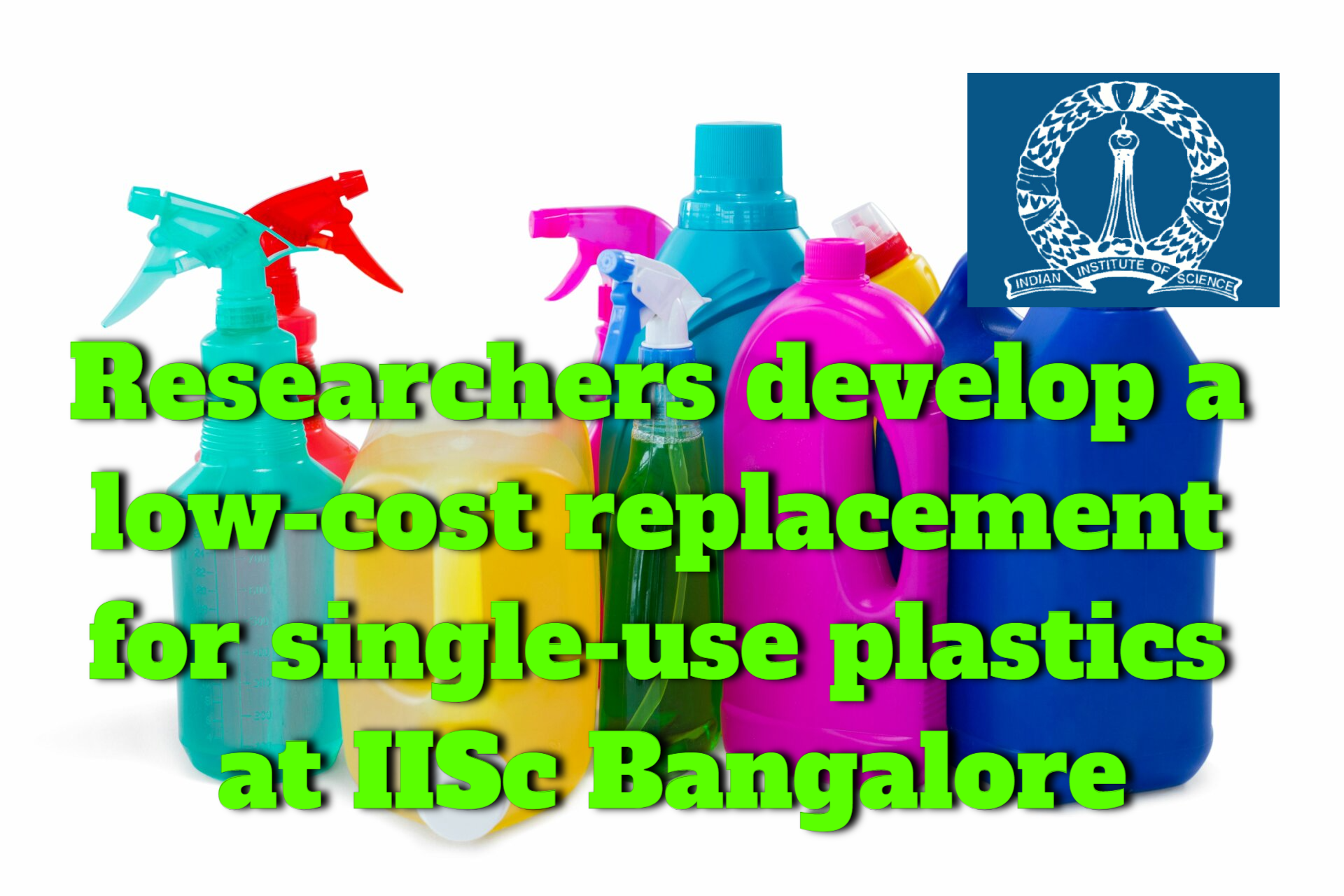A low-cost, environmentally friendly replacement to single-use plastic has been developed by students at the Indian Institute of Science (IISc) in Bangalore. Crop stubble and a readily available non-edible oil containing cellulosic material are used to make the polymer.
Key Highlights
- Crop stubble and a readily available non-edible oil containing cellulosic material are used to make the polymer.
- The material took a year to build and was developed by ISe Bangalore’s IPTel.
- The team submitted a patent for their innovation under the guidance of Department of Materials Engineering professors Suryasarathi Bose and Kaushik Chatterjee.
A low-cost, environmentally friendly alternative to single-use plastic has been developed by IISc Bangalore students.
The team submitted a patent for their innovation under the guidance of Department of Materials Engineering professors Suryasarathi Bose and Kaushik Chatterjee. The material took a year to build and was developed by ISe Bangalore’s IPTel, the intellectual property and technology licensing business.
As a result of stubble burning in surrounding states, North India is experiencing an acute air pollution crisis, according to IISc research associate Indranil Chakraborty, who worked on the solution.
One million tonnes of plastic are generated in India every year, and only 9% of it is recycled. In both marine and terrestrial ecosystems, this is disastrous.
Because it’s a cheaper alternative to single-use plastic, the product helps to minimize plastic waste and cope with crop stubble issues. To make the polymer, farmers use crop waste and a commonly available and inexpensive non-edible oil that contains cellulosic waste from the agricultural industry.
Polyurethane generated from non-edible materials, according to Bose, can replace conventional single-use plastics in a wide range of sectors. In addition to being environmentally friendly, the polymer is non-toxic and impermeable. The non-toxic nature of the product makes it appropriate for a wide range of consumer uses.
We hope to share our technology with other companies so that they may adjust the qualities of the materials we’ve developed to meet the needs of different market groups,” added Chatterjee.
Bags, cutlery, and tumblers that are typically made of plastic have already been constructed by the team. The biodegradability of the polymer is now being tested. The group now plans to sell the product and is considering different uses for it.
IISc students create low-cost substitute to single-use plastic@tnatw @steepdecline @KalPatel@JeniusLinkhttps://t.co/lX9GR7mLE5 pic.twitter.com/y8m6ZopX5p
— vardaan sharma (@vardaan_sharma_) September 26, 2021







[…] Researchers at IISc Bangalore develop a low-cost replacement for single-use plastics […]